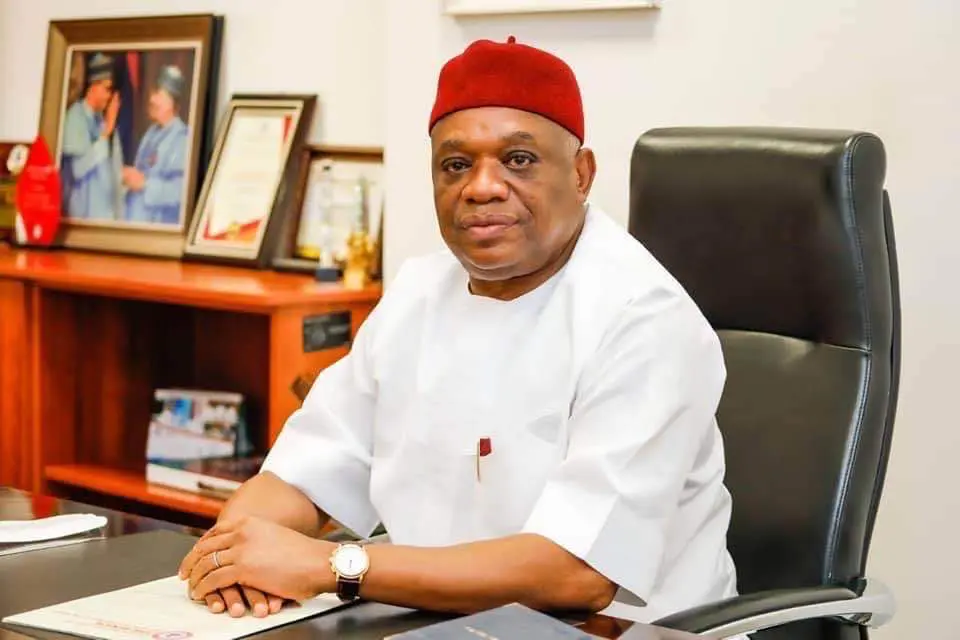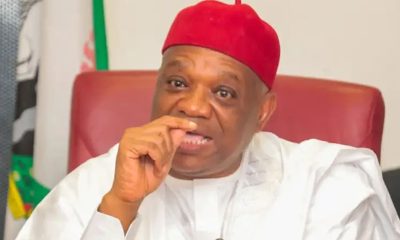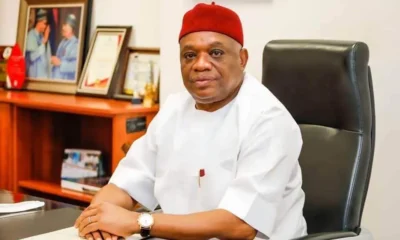NEWS
Orji Kalu Asserts Igbos Have Not Been Forgiven by Nigeria, Unfairly Treated

Former Abia State Governor and Senator, Orji Uzor Kalu, has delivered a powerful and emotional critique of Nigeria’s post-Civil War reconciliation efforts, stating unequivocally that the Igbo people have not been genuinely forgiven for the Biafra conflict, a situation he believes continues to plague the nation. The respected politician, speaking on Channels Television’s Politics Today on Wednesday, pointed to decades of systemic exclusion and negative stereotyping as evidence that the “no victor, no vanquished” policy declared at the war’s end remains an unfulfilled promise for the nation’s South-East geopolitical zone. Dependable NG reports that in the second line of the content, the former Governor emphasized that the continued discrimination against Ndigbo poses a fundamental threat to the country’s aspiration for unity and progress.
Senator Kalu lamented that the treatment meted out to the Igbo nation since the cessation of hostilities in 1970 has been fundamentally unfair, insisting that Nigeria must take deliberate steps to address the historical injustices and ensure equitable treatment for all ethnic groups. “Since after the civil war, Igbos have not been fairly treated. I don’t hide in saying it,” the Senator stated. “Nigerians need to reassure the Igbos and play by the rules so that everyone will be equal and the country can develop.” He maintained that the persistence of discrimination against the people of the South-East is a significant hurdle that continues to hinder genuine national progress.
Providing a poignant example of the societal prejudice that still exists, the former Governor recounted an experience involving his own family, noting that even those in the diaspora quickly grasp the negative atmosphere. He explained how his children, upon returning to the country, noticed the subtle yet pervasive culture of animosity. He described what he called the “sagacity of saying, ‘oh, this Igbos’,” suggesting that such comments and entrenched stereotypes actively discourage citizens and investment. Kalu stressed that the Igbo people have committed no current offence to warrant their continued political and economic marginalization, urging the nation to move past the painful history of the Civil War. He said: “I didn’t know how the civil war started. I didn’t know how it ended. And we should forget about that. Look at small Rwanda with all the hatred in that country. You can see the progress they are made. We should be able to leave this tribalistic of a thing, leave religion, leave ethnic. The Igbos, they have not been forgiven.”
Political analysts and historians often trace the foundation of this feeling of being unforgiven to a series of policies implemented by successive post-war military regimes, which many Igbos viewed as punitive measures designed to stifle their economic and political power. These policies included the infamous ’20 Pounds Policy,’ where Biafran bank account holders were given a flat sum of only twenty pounds regardless of their pre-war savings, effectively wiping out the wealth of the region. Furthermore, the 1972 Nigerian Enterprises Promotion Decree, often known as the Indigenization Decree, was implemented at a time when Igbos were struggling to regain their financial footing, allegedly favoring other groups in the takeover of foreign-owned businesses. The cumulative effect of such economic disadvantages, coupled with glaring infrastructure deficits in the South-East zone and limited representation in key federal appointments—a persistent violation of the Federal Character Principle—are frequently cited as evidence of sustained marginalization.
For many within the South-East, the most painful indicator of this lingering sentiment is the continued exclusion of the Igbo from the presidency, a key position of national power, decades after the war’s end. This political marginalization fuels the sense that the region is still perceived as a conquered territory, undermining the spirit of true national integration and unity. Senator Kalu’s call for the country to emulate Rwanda, which has worked consciously to foster national healing and development following the 1994 genocide, highlights the deep yearning for a shift from a divisive past. His plea is not merely for political equity but for a foundational change in the national psyche—a recognition that, until all ethnic groups feel equally invested in the Nigerian project, the potential for discord will remain high, placing a severe drag on the country’s enormous developmental potential. The message from the Senator is clear: the path to a prosperous Nigeria is paved not with the continuation of tribalistic prejudices but with sincere forgiveness, equality, and a shared commitment to building a cohesive, federal republic.






